
Despite shouldering half of the "weight" of the economy , the private economy faces many barriers. (Photo: Vietnam+)
After nearly four decades of renovation, Vietnam’s private economy has witnessed a strong rise, becoming one of the important pillars of the socialist-oriented market economy. With more than 940 thousand enterprises and more than 5 million business households in operation, the private sector contributes about 50% to GDP, creates more than 80% of jobs and is the driving force for innovation and creativity.
However, the development of this sector has not shown overall growth, but is still only fragmented. Although it carries half of the "weight" of the economy, the private economy faces many barriers, so it cannot fully exploit its potential and has not really become the driving force for the country's development.
Many barriers "hold back" private enterprises
Vietnam's private economy has made significant progress since the 1990s. This development is clearly demonstrated through impressive figures. According to statistics, the private economic sector accounts for more than 30% of the total state budget revenue, many enterprises have reached regional and world stature, affirming their position in the market.
However, the private economy still has many limitations. Dr. and economic expert Nguyen Dinh Cung pointed out a number of outstanding issues. Although this sector has developed quite rapidly, the number of enterprises is still small, the density of enterprises is very low and the distribution is uneven by locality, socio-economic region and economic sector.
Specifically, more than 70% of enterprises are concentrated in the Red River Delta and the Southeast. The density of enterprises per 1,000 people and over 1,000 employees in many localities is still very low. In terms of industry distribution, about 70% of enterprises operate in the processing, manufacturing, construction, wholesale and retail industries. Meanwhile, the number of enterprises in high-quality, high-value-added service industries (logistics, technology, healthcare,education , etc.) is still limited. Most private enterprises are micro, small and medium-sized. Financial potential and management skills are limited, technological capacity, innovation, labor productivity and operational efficiency are not high. In addition, business thinking lacks strategic vision and lacks connection with state-owned enterprises and FDI enterprises.

Most private enterprises are micro, small and medium sized. (Photo: Vietnam+)
In the economy, the annual growth rate of the number of enterprises in operation is not high and is on a downward trend. The targets for the number of enterprises have not been achieved and the distance to the set target is getting farther and farther, while the growth rate of the number of enterprises withdrawing from the market tends to increase, even surpassing the rate of market entry.
Explaining the above limitations, Mr. Cung pointed out the barriers that the private economic sector has to face. First is the issue of awareness, with inadequate thinking about the position and role of the private economy in the economy as well as not keeping up with development requirements. This leads to long-standing institutional and legal problems. Specifically, legal regulations are still overlapping and lack transparency, causing difficulties for businesses in the process of operation. In particular, property rights and freedom of business are not fully guaranteed, creating a mentality of hesitation and fear of risk for businesses.
Dr. and economic expert Nguyen Dinh Cung: "First is the problem of awareness, with incomplete thinking about the position and role of the private economy in the economy as well as not keeping up with development requirements."
Therefore, Mr. Cung emphasized that the private economic sector always faces difficulties in accessing resources in society. The biggest difficulty is accessing capital, especially credit capital, due to requirements for collateral and complicated procedures. This leads to limitations in accessing new, modern technology as well as a lack of investment funds for research and development (R&D).
Another inherent difficulty is access to land to expand production areas and the shortage of high-quality, qualified and skilled human resources to meet the requirements of development. Meanwhile, preferential and support policies are not really effective and difficult to access. In the market, business costs are rising due to high legal compliance costs, the burden of informal costs, etc.
With telling numbers, Mr. Dau Anh Tuan, Deputy General Secretary, Head of the Legal Department of the Vietnam Federation of Commerce and Industry (VCCI) shared the Provincial Competitiveness Index (PCI) Report 2024 with more than 8,000 operating private enterprises. In 2024, the quality of administrative procedure processing showed signs of slowing down with nearly 24% of enterprises saying that they had to spend more than 10% of their time to learn and implement legal regulations; 22% of enterprises reflected the duplication of inspection content. Notably, only 51% of enterprises completed land procedures in the past 2 years without encountering any problems; 68% of enterprises carrying out land administrative procedures said that the biggest reason was that the processing time was longer than prescribed; procedures for determining the value of land use rights took a long time; 51% reflected that the receiving officers did not provide detailed instructions; 49% said that the settlement process was not in accordance with the content of the document/regulation; 41% said that the actual land price was different from the regulated price frame. In addition, 37% of enterprises paid unofficial fees. Specifically, the rate of enterprises paying unofficial fees to inspectors and examiners was up to 28%, performing conditional business procedures was up to 55%, about 50% for land procedures, and 28.6% in local public bidding.

In 2024, the quality of administrative procedure processing showed signs of slowing down, with nearly 24% of businesses saying they had to spend more than 10% of their time learning and implementing legal regulations. (Photo: Vietnam+)
Surprisingly beyond the stereotype of "merchant"
Ms. Nguyen Thi Tra My, General Director of PAN Group, emphasized a journey of "transformation" from despised "traders" to creators contributing to the country's development.
Although the pace of life is always hectic, for entrepreneurs who started their businesses before the 90s, there still seem to be some “memories” of a time when they were once looked down upon and a journey to overcome the burdens of the past to write “a new chapter,” becoming indispensable factors in building the future of the country. That journey is not only a story of innovation in business, but also an emotional journey of faith, perseverance and aspiration to contribute.
"Before 1988, people called us 'traders'. Businessmen at that time had many dreams and ambitions, but always had to face suspicious eyes and invisible barriers," - Ms. My began honestly.
"Up to now, our job is still trading fish, shrimp, rice, fish sauce... However, it is truly an explosion! Resolution 68 was born with open business conditions and rare incentives. In particular, the Resolution is not only a legal recognition, but also a 'medicine' to soothe the many years of hardship of businessmen in the market. For me, the belief was lit like a fire that began to burn," Ms. My shared.

The rate of enterprises paying unofficial fees to inspectors and examiners is up to 28%, implementing conditional business procedures is up to nearly 55%, about 50% for land procedures, and 28.6% in local public bidding. (Photo: Vietnam+)
Recalling the time in 1995 when she was a representative of an Austrian company in Vietnam, Ms. My said that when she received the Investment License and opened it, there were more preferential content lines than information about the company. Specifically, incentives on tax, time, land rent... (up to two pages long). According to her, these were truly "fertile lands" for the "seeds" - foreign enterprises to take root. In fact, after that, this company was very successful and that result was largely thanks to the "gifts" from the policy.
Up to now, Ms. My emphasized that Resolution 68 is an important "push". The above incentives and policy changes have come to domestic private enterprises. This will be an opportunity to create high-quality products to reach the world. As a representative of enterprises in the agricultural sector, Ms. My emotionally said: "We have the right to continue expanding our land with the dream of big investment. When we have confidence, we will dare to play and play bigger. I really like to talk about confidence, for me it is the first. It is confidence in sustainable values, the aspiration for dedication. In fact, we have many business owners in their 70s and 80s who are still working hard in their business. Because they have a strong belief in dedicating and contributing to the development of the country."
Ms. Nguyen Thi Tra My, General Director of PAN Group: "Once we have confidence, we will dare to play and play bigger. I really like to talk about confidence, for me it is the most important thing."
As an entrepreneur who has been in the economy for over 30 years, Ms. Nguyen Thi Nga, Permanent Vice President of the Vietnam Association of Private Entrepreneurs and Chairwoman of BRG Group, also expressed her joy and excitement when receiving the new and innovative ideas in Resolution 68 of the Politburo. According to her, the Resolution has looked directly at the private economic sector, from its great contributions to GDP, budget revenue, job creation... to its inherent problems, causes and solutions.
According to Ms. Nga, the incentives and incentives given to the FDI sector in the past few decades have caused the domestic private sector to lose its competitiveness and risk being defeated right at home. She also emphasized that although FDI enterprises account for two-thirds of the export proportion, their activities are still mostly processing and assembling stages that bring low added value, prioritizing the exploitation of cheap labor resources rather than expanding and developing core business activities in Vietnam.
Therefore, Ms. Nga believes that Resolution 68, along with other "timely" Resolutions in recent times (such as Resolution 57 on breakthroughs in science, technology, innovation and national digital transformation; Resolution 59 on international integration in the new situation; Resolution 66 on innovation in law-making and enforcement to meet the requirements of national development in the new era) has brought great motivation, inspiration and confidence to business people in business development, contributing to national development and fulfilling social responsibilities.

Incentives and incentives for FDI in the past few decades have caused the domestic private sector to lose competitiveness and risk being defeated at home. (Photo: Vietnam+)
In addition, Mr. Nguyen Duy Hung, Chairman of the Board of Directors of Tan Hiep Phat, shared insights into the role of private enterprises and strategies to reach new heights. According to him, the goal of building and developing domestic enterprises is not only aimed at individual enterprises and enriching each entrepreneur. The big goal is to contribute to the development of the country, thereby ensuring economic self-reliance, ensuring national defense and security. Therefore, Mr. Hung emphasized that the policy of developing domestic enterprises has been implemented by many countries in the world. Therefore, learning from the experiences of previous countries is extremely important.
According to Mr. Hung, there is still a difference between the quality standards system in Vietnam and the world, so it is necessary to improve product quality. The global value chain can penetrate every field and domestic enterprises may lose at home if they do not improve their competitiveness. In a country, the private economy is not only the main driving force for economic development through numbers, the private economy also spreads the spirit of entrepreneurship and the spirit of service.
To date, the private economy has been recognized as playing a very important role in Vietnam's development. However, for this sector to truly become an economic "locomotive", breakthrough changes are needed./.
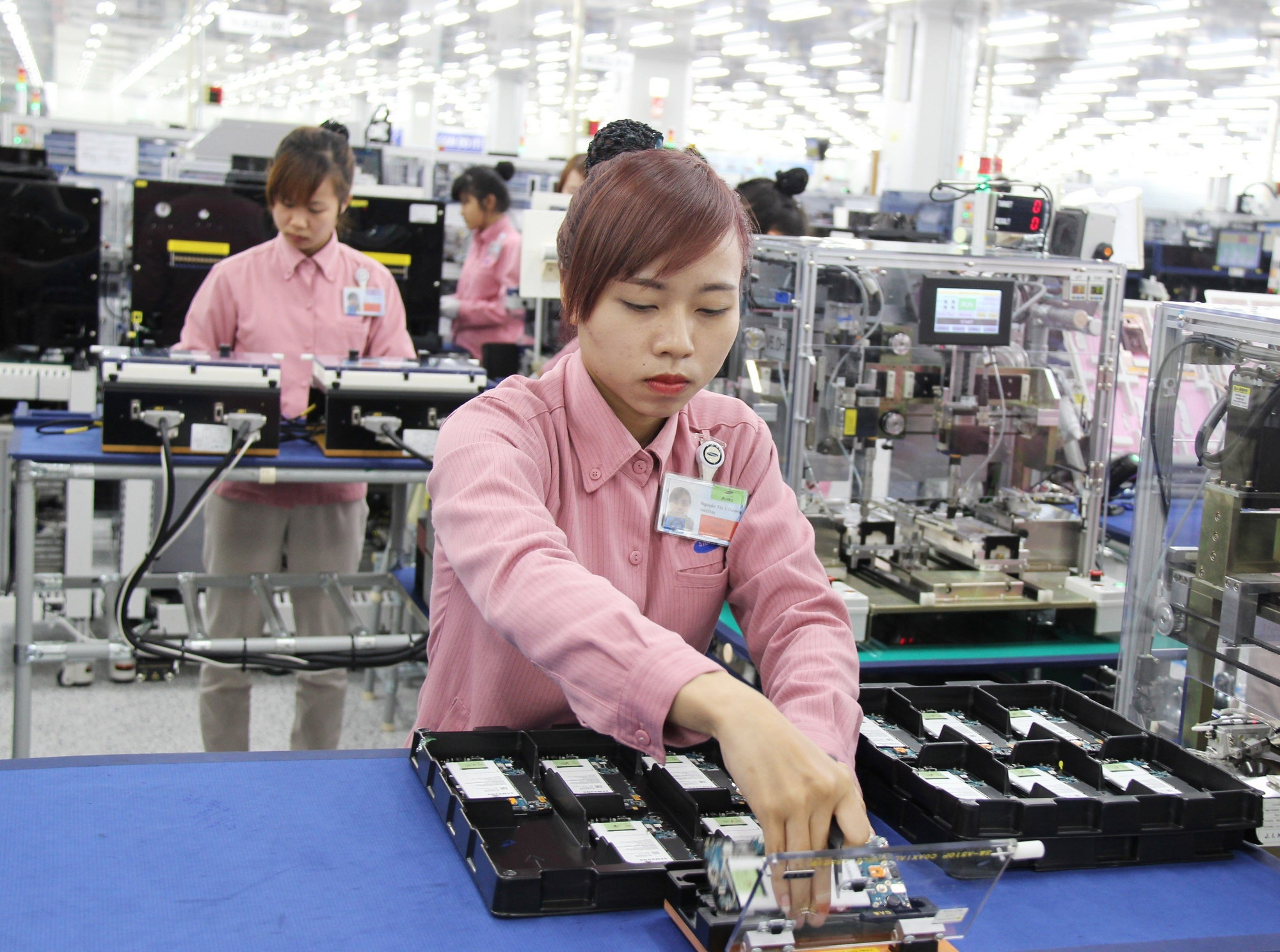
For the private economic sector to truly become an economic "locomotive", breakthrough changes are needed. (Photo: Vietnam+)
(Vietnam+)
Source: https://www.vietnamplus.vn/ganh-mot-nua-gdp-kinh-te-tu-nhan-van-chi-la-kep-phu-post1047546.vnp








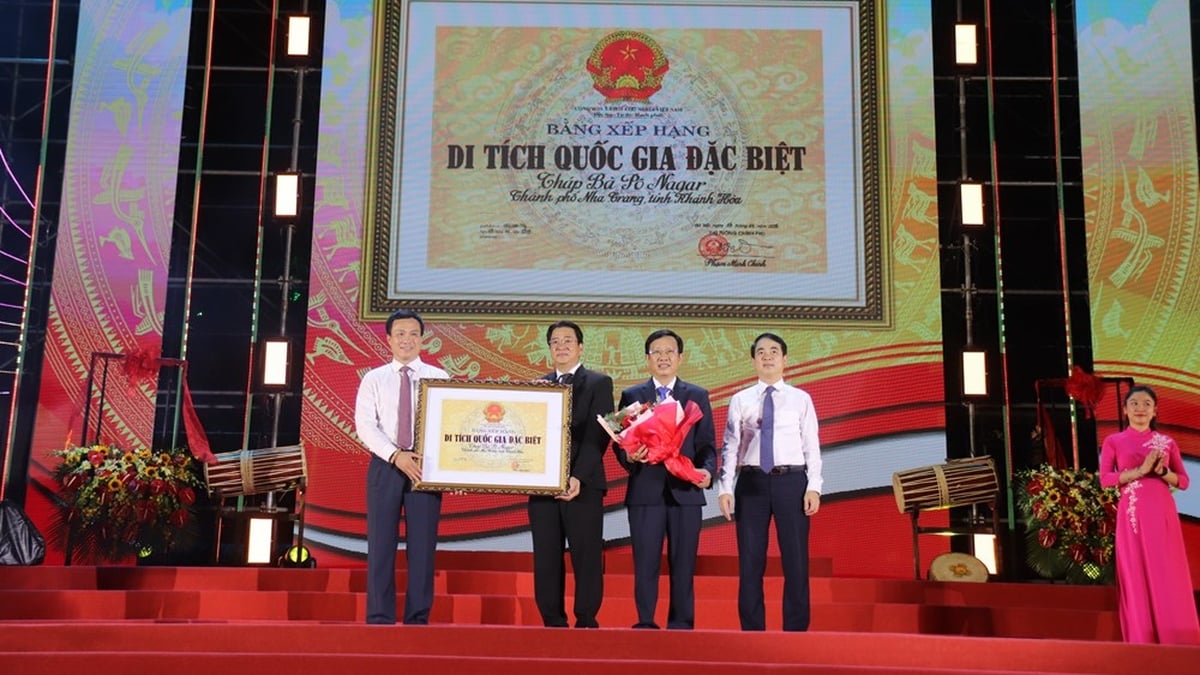
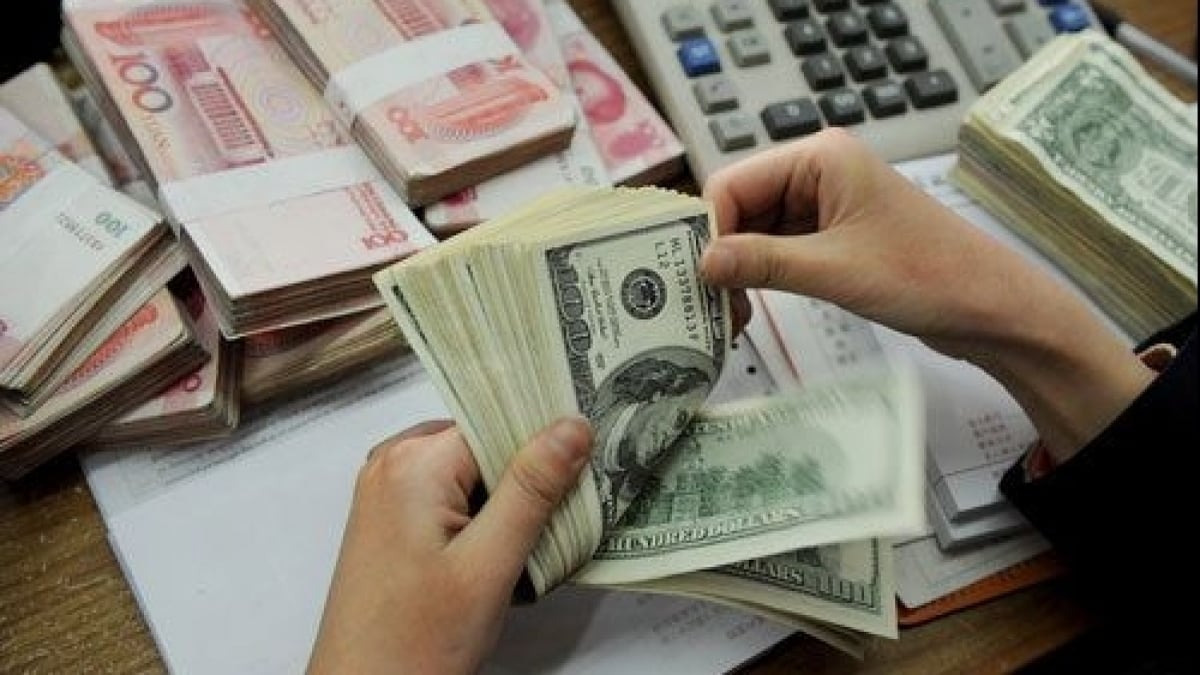

















![[Photo] Gia Lai provincial leaders offer flowers at Uncle Ho's Monument with the ethnic groups of the Central Highlands](https://vphoto.vietnam.vn/thumb/1200x675/vietnam/resource/IMAGE/2025/7/9/196438801da24b3cb6158d0501984818)










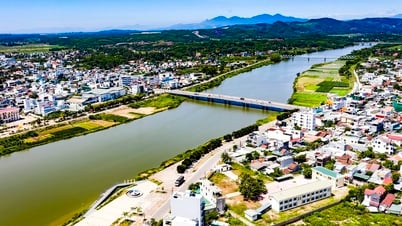
















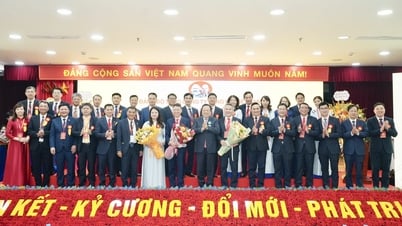














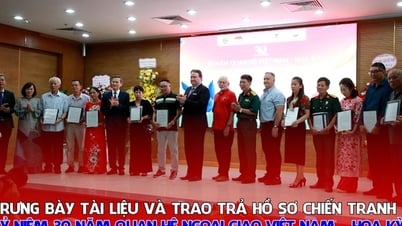



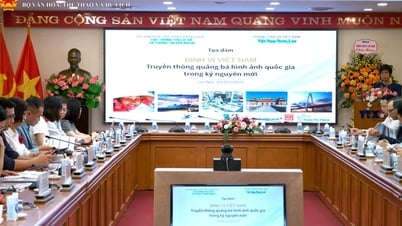
























Comment (0)